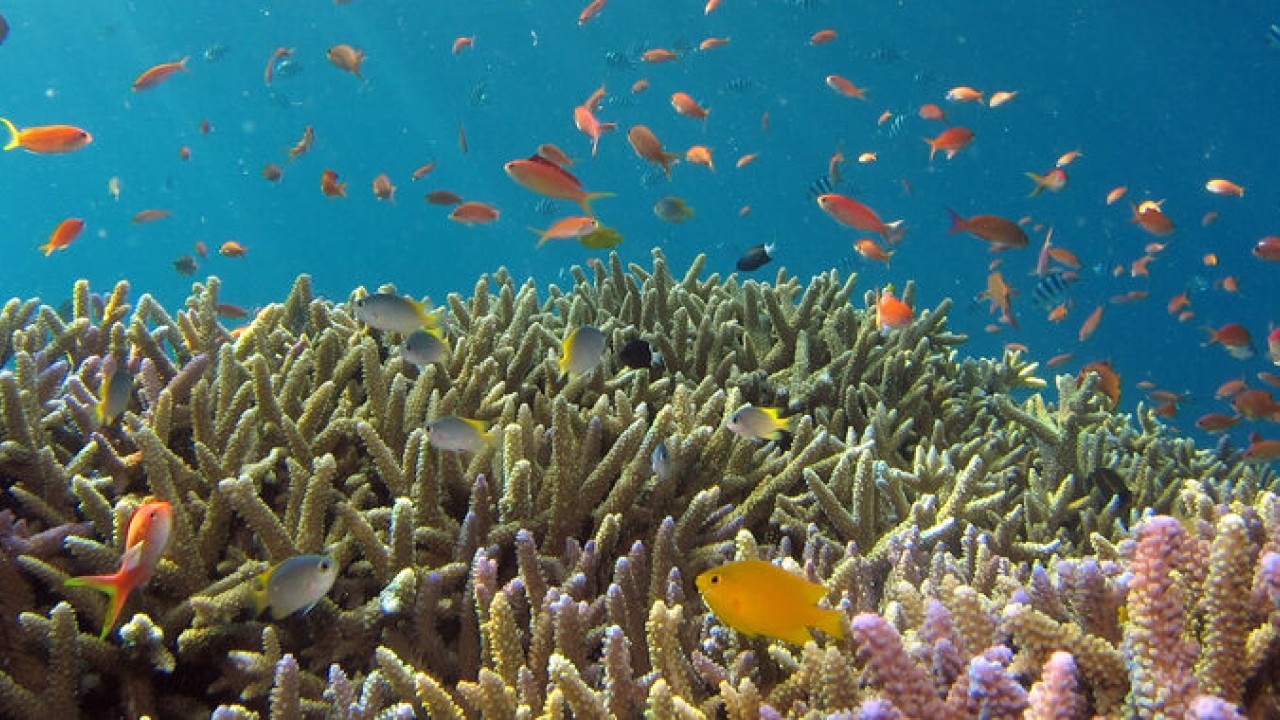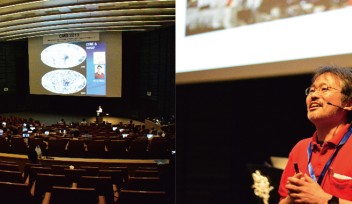Oceans–and the impact of humans and climate change

The Okinawa Institute of Science and Technology Graduate University (OIST) and Tohoku University held their second joint workshop on marine science in April 2022. The aim of the two-day workshop, called “Oceans—and the impact of humans and climate change”, was to present research around the impacts that climate change would have on coral reefs, and other systems, such as aquaculture. Okinawa’s unique location—surrounded by the Pacific Ocean on one side and the East China Sea on the other and home to a diverse array of marine environments—offered the perfect place to discuss this kind of research.
The workshop series is one of several initiatives intended to strengthen the research collaborations between OIST and Tohoku University. As the number of OIST’s marine science related units increases, a world-class environment for marine science research and education is being built. Tohoku University, located in Sendai, is a well-established university with strong programs in applied marine biology. Collaborations between the two universities would ensure partnerships for researching climate change, genetics, marine biophysics, and more, across the length of Japan.
Although this was the second workshop, following one in 2021, it was the first workshop where members of Tohoku University attended in person. In 2021, due to COVID-19 travel restrictions, they only attended online. The 2022 hybrid event saw 40 people present in the room, and 50 people online, from as far afield as Taiwan, Sweden, and Palau. Professor Michio Kondoh from Tohoku University highlighted that the hybrid event had been a long time coming. “I’m very happy to be here,” he said, during his introduction. “This workshop has been planned for over two years.”
The workshop opened with a panel discussion between researchers from the two universities where topics around the two-fold benefits of citizen science, the complexity of marine ecosystems, and the importance of looking at marine management through both a global and local lens were discussed.
The morning also saw the announcement of the 2023 Thematic Program—another of the initiatives that seeks to enhance collaborations between Tohoku University, OIST, and the University of Ryukyus, also located in Okinawa. Its goal is to develop young scientists by funding research partnerships between the universities. The use of new methods, such as environmental DNA analysis, and the pursuit of interdisciplinary research is encouraged.
In the afternoon of the first day, different scientists from Tohoku University, OIST, and the University of Ryukyus presented their research, which showcased the interdisciplinary nature of marine science.
“The scientists presenting at this workshop are not necessarily traditional marine biologists and marine scientists. They come from a wide variety of disciplines,” highlighted Prof. Nicholas Luscombe, Principal Investigator of the Genomics and Regulatory Systems Unit at OIST and Vice Dean of Research.
In the final day, the different marine science related units of OIST introduced their research. The workshop also featured time for networking, both in person and online, and a poster session.


The hybrid workshop strengthened research ties between OIST and Tohoku University and resulted in the acknowledgement that, going forward, continued collaboration was important.
For press enquiries:
Press Inquiry Form












